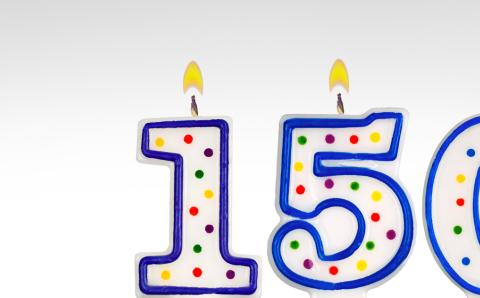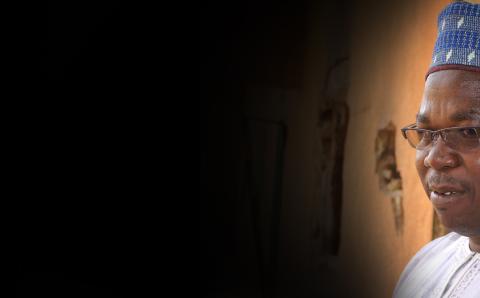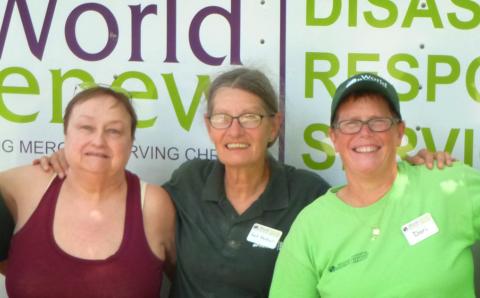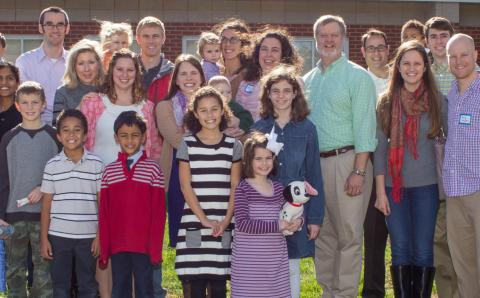I’d like to believe that when someone dies young, say from cancer at age 42, leaving a young family behind, I’d like to believe that “nothing is wasted.”
That’s the sort of well-intentioned thing we say to reassure each other: “We don’t understand, but his life was complete.” “God called him home.” “He’s in a better place.” “God’s grace is sufficient.” Now he’s with [loved one who previously died].” Most days, I believe all that.
Other days, I cannot get over that terrible sense of waste.
When the bad news piles up, when three colleagues—all too young—die in the same month, when I remember other people I’ve loved, their cancers and accidents and rare diseases—I wonder about what could have been, all the beautiful possibility now lost—wasted.
In Michigan, late July on a day after a rain, blueberry bushes are so laden they look blue from a distance. If you pick berries on such a day, they roll right off the stems in bunches. Your bucket fills quickly. In the straw beneath each bush, though, are the berries that dropped, rotting on the ground. The bushes produce far more than pickers will ever gather, far more than the rolling machines will shake into metal bins. Thousands of berries will drop on the ground and rot.
Of course, nothing is wasted in nature. The dropped berries are broken down by microbes and they return to the soil and fertilize the bushes, or they pass through the digestive systems of birds and return nitrogen to the soil somewhere a mile away.
Nature depends on the principle of redundancy, even gross overabundance. Berries, cottonwood seeds, tadpoles, spermatozoa, sparrows, mosquitoes. A deer produces twin fawns. If one is weak, it will be abandoned. No matter. The other survives, and the weaker fawn feeds the wolf cubs. It’s the circle of life. Nature never wastes.
Or does it? Maybe it’s more honest to say that nature revels in waste, glories in it, spins it into the swirling patterns of life.
Is that how God sees the patterns of our lives, like so many twin fawns? Some will live long, some will die young. They succumb to the wolves. No matter. It’s the circle of life.
What about those who died in the church in Charleston, what about all the black lives who matter but are cut short in snarls of hate? Or all the children who have died—so far—in the American scourge of gun violence in schools, or the soldiers killed in mistaken wars, or the innocents killed by bombs or machine guns, randomly, senselessly?
I can’t bring myself to say “nothing is wasted” about these lives. The missing futures, the lost possibilities, the dreadful, sudden emptiness. Even my high view of Providence can’t get me past my anger—some days—at this awful sense of waste.
I know that lives diminished or cut short are still meaningful, purposeful, beautiful. People leave behind legacies in their families, friends, work. Untimely deaths motivate people to fight for good causes. I know there’s a way to cherish something precious for every name on our personal lists of sorrow. It’s tempting, in fact, to regard a life as more precious when it is somehow limited or cut short.
But those missed futures, all-that-could-have-been, is it all held in the mind of God? Is that enough?
Does God revel in what seems to us like waste, glory in it, spin it into the swirling patterns of life?
“See, I have engraved you on the palms of my hands” (Isa. 49:16).
About the Author
Debra Rienstra is a professor of English at Calvin University, Grand Rapids, Mich.









